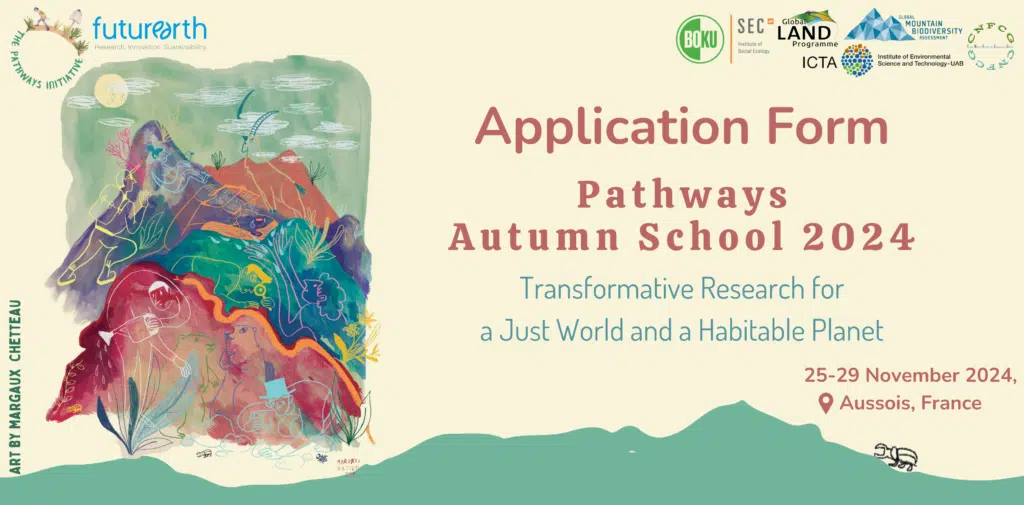
The Pathways Autumn School aims to foster exchange of knowledge and learning through critical dialogue between early career researchers and senior researchers from the natural sciences, social sciences, and the humanities. It supports the urgent task of a more practical, inter- and transdisciplinary and inclusive approach to research capable of responding to interlinked environmental and social habitability challenges. By participating in the 5-day programme of workshops, keynote sessions and discussions, participants will be able to learn and reflect on how research can better contribute to creating conditions for a ‘good life’ for all on a habitable planet.

Societies are confronted with the urgent task of achieving a ‘good life’ for over 9 billion people in 2050 while safeguarding planetary boundaries. Humanity has, however, been surpassing critical planetary processes at a pace far exceeding its efforts to meet the fundamental needs of the population. Furthermore, the pursuit of a ‘good life’ in the wealthiest regions has impeded the prospects for others, and for future generations and nature, to achieve the same.
A good life requires, as a minimum, the fulfillment of basic needs such as clean air and water, adequate nutrition, housing, mobility, healthcare, education and social participation. While the ways these can be fulfilled are highly dependent on socio-cultural contexts, basic needs are universal. Creating the conditions for a good life for all and for improving our planet’s habitability means providing everyone with their basic needs and protecting our climate and ecosystems. Technological change is part of the response. However, technical solutions continue to neglect the root issues fostering environmental destruction. They fall short in challenging the power dynamics and inequalities embedded within the broader social, cultural, and political dimensions inherent in sustainability and habitability concerns. Our growth-dependent global economy continues as status-quo. The necessary degrowth in global production and consumption to safeguard our planet’s boundaries should go hand in hand with social justice.
Achieving these multiple goals requires transformations at all levels. For the research community, contributing to these transformations takes many forms that will be at the core of the 2024 Pathways Autumn School: reassessing our modes of social, economic and institutional organization and understanding why they continue to deepen the environmental crisis and to impede our capacity for action; redefining living within nature; learning from, designing and experimenting with other modes of inhabiting the planet and fulfilling basic needs; exploring new ways of influencing decision making and engaging with society beyond reiterating evidence-based warnings; contributing to amplify the impact of potentially transformative options.
Doctoral researchers and researchers who finished their PhD in the last 10 years (excluding periods of parental leave) who are living and working in Europe can apply.
The aim is to assemble a group of early career researchers from across Europe with a variety of backgrounds in terms of disciplines, approaches, visions, themes, and research practices, who share the wish to reflect and act on how research can better contribute to societal transformations.
As a prerequisite for participation, applicants need to be pursuing research related to the autumn school’s core themes and questions. Additionally, applicants are expected to have sufficient proficiency in English to be able to actively participate in the School.
Please fill in the application form before May 22 by clicking register below
Photo by Federica Galli on Unsplash